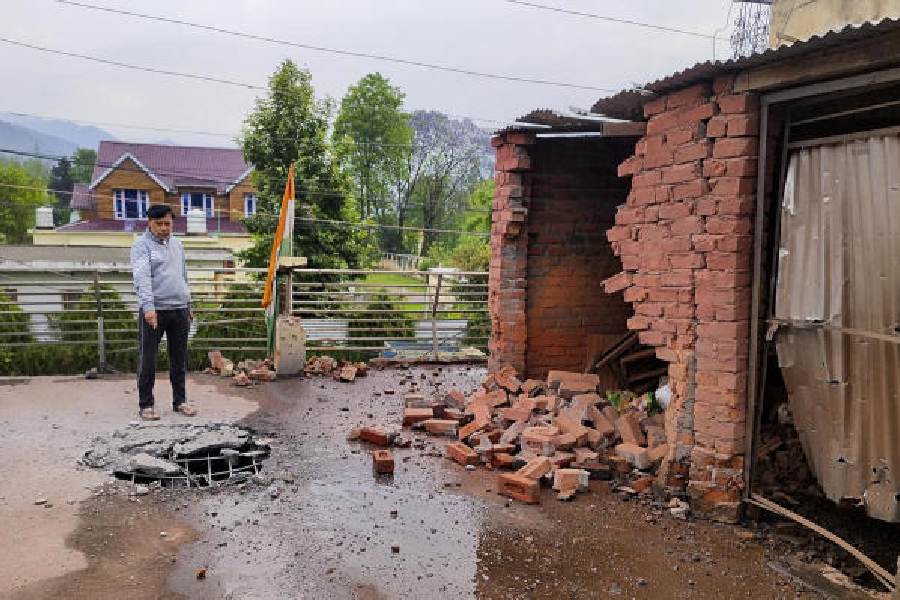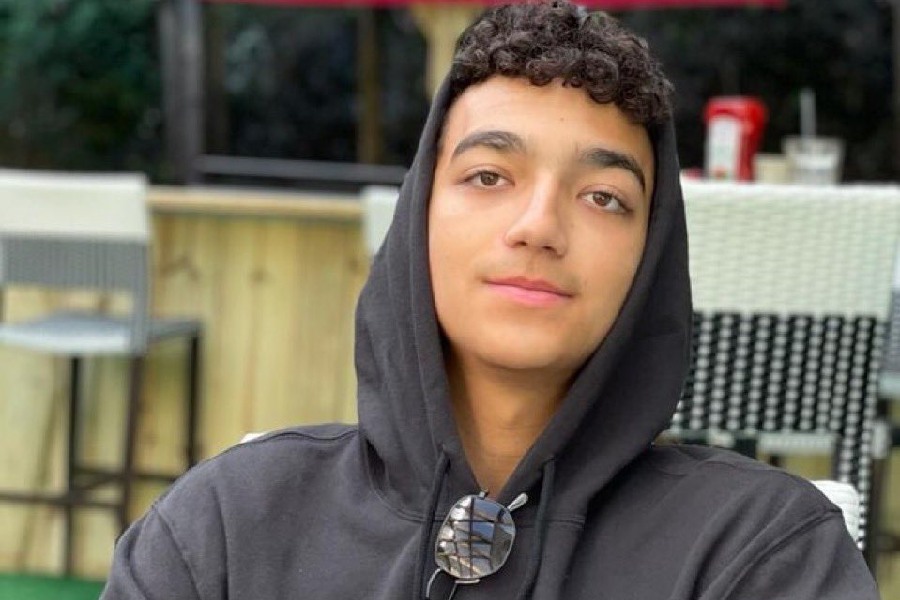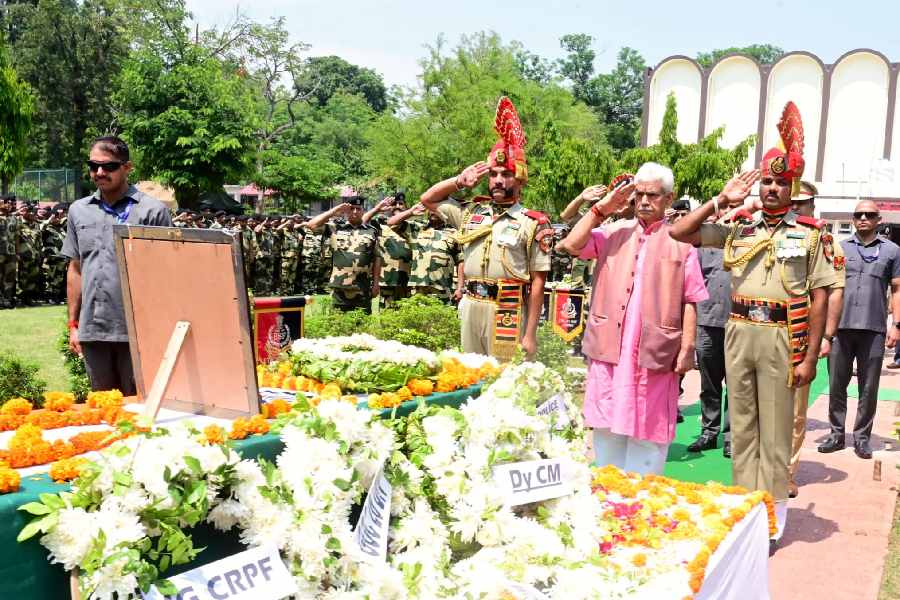.jpg)
Thus went the call: "My name is Samir Mukerjee and I was very moved by your article on the ghettoisation of Muslims in Ahmedabad. I would like to meet you, can you come over and have tea with me?" Not in the habit of taking up invitations from unknown people, but also not wanting to be rude, I replied with an invitation of my own, "Why don't you come to my office and have tea with me instead?"
There could be no safer place than a newspaper office, I thought to myself. "I don't go out much these days," came the reply in a deep, mature voice with perfect English diction. "I live on Lower Circular Road, please let me know when you will be free," he said, before putting the phone down.
Intrigued, I promptly went to seek advice from a senior colleague. "Of course you can't go. It could be anybody - Samir Mukerjee is hardly an uncommon name in Calcutta. The VHP-types can't be very happy with your article. It could be a trap! No!" was the emphatic reply. Bowing to his years of experience both as a journalist and as a Calcuttan, I put the call out of my mind.
A few hours later I received a second call. "My name is Anita Mukerjee, and I believe my husband called you this morning inviting you to tea," she said in a chirpy voice. "Actually he has polio and walking is a bit of a problem, so it would be good if you could come to meet us," she continued, passing the phone to her husband. Hearing these words, my apprehensions began to fade.
Curious to find out more before I took a decision, I asked: "What do you and your wife do?" "Nothing, I am retired and Anita is a housewife," the voice announced. The man is really not willing to give anything away, I thought. "And what did you do before you retired Mr Mukerjee?" I persisted. "I was in business," he replied curtly. After much prodding he informed me that he "worked for Martin Burns as my family owned the company" and finally uttered the clincher: "Sir Biren Mookerjee was my uncle".

Though I was relatively new to Calcutta, it was impossible not to know of Sir Biren or his father Sir R.N. Mookerjee, the industrialist who had built much of old Calcutta, including Victoria Memorial. Why did we have to beat about the bush, I thought, as all my fears flew out of the window; why couldn't he have mentioned his pedigree right at the beginning? But then, that was true to his character as I would find out later. I accepted the invitation - that was more than 15 years ago - and since then I have had numerous cups of tea, scrumptious sandwiches and tasty cakes along with delightful conversations with Samir da and Anitadi - as they would come to be known by me and everyone else who knows them.
Over the years I realised that the literati and glitterati, whether living in Calcutta or visiting the city, were invited to the Mukerjees' for tea. From Mrinal Sen to Nandita Das, from Pritish Nandy to Amit Chaudhuri - all have graced his home. You were to arrive sharp at 5.30pm when you would find Samir da, always nattily dressed, seated in the lounge. His lovely wife, looking fresh and cool no matter how hot it was outside, would make you feel welcome and then go off to arrange the tea. Samirda would then begin to quiz you on the topic that he felt you could enlighten him on. His interests ranged from art, music, films, literature - both English and Bengali - politics, history, food, fashion and frankly, everything under the sun.
"So tell me Sajeda, what did you do in England this time? Did you eat any Eaton mess or figgy pudding?" he would ask me on my return from London. After graduating from St. Xavier's College, Calcutta, Samir da had gone to Trinity College, Cambridge in 1951, to read Economics. It left a lasting impression on him, and, unfortunately, after being struck with polio in 1959, he was unable to visit England again. Time had stood still for him since then and my stories of the contemporary UK shocked and upset him.
In the 1970s, despite his privileged upbringing, Samir da became a staunch supporter of the CPM and counted Jyoti Basu as one of his close friends. By 2010, he, like the rest of Bengal, had become disillusioned with the Communists and would hark back to the good old days. Witnessing life under the Raj, the freedom struggle, India's Independence, and everything else that came thereafter, Samirda wrote wonderful vignettes of a world now long dead and buried. His columns were printed in The Telegraph and The Bengal Post and eventually collected into two books: Calcutta: A City Lived and Remembered, and Calcutta: Musings from a Room, published in 2010 and 2015 respectively.
He was a great letter writer of the old school and keeping in touch with friends around the world by email was not for him. I still have a collection of wonderfully vivid letters dictated by him and written in Anita di's beautiful handwriting sent to me in London over the decades.
Languages were another passion and in the twilight of his life he decided to learn Urdu and quickly became proficient, putting the best of us to shame.
Despite his affliction Samir da never lost his zest for life. Even at the age of 85 he would watch Fashion TV with his wife and discuss the pretty young things strutting their stuff. I found his relationship with Anitadi very romantic. She was his rock, standing by him through everything and sharing a rare bond that lasted 48 years of marriage and three years of a secret courtship before that.
On September 25, I received another call, this time in London. "Samir passed away this morning," said Anita di. Shocked by the news as I had received a letter from him only weeks earlier with no mention of ill health, my eyes welled up as I toasted him with a cup of tea.
Sajeda Momin

.jpg)









